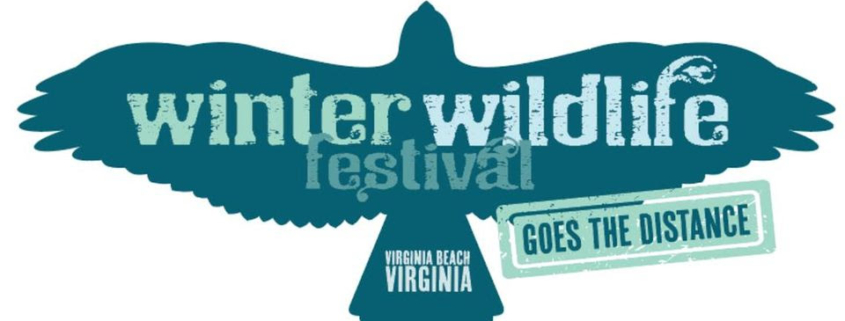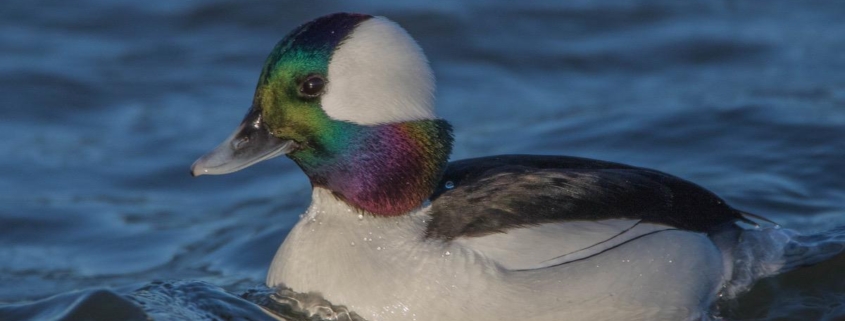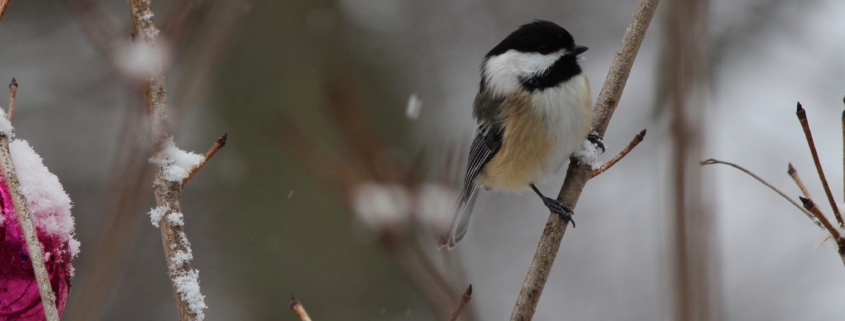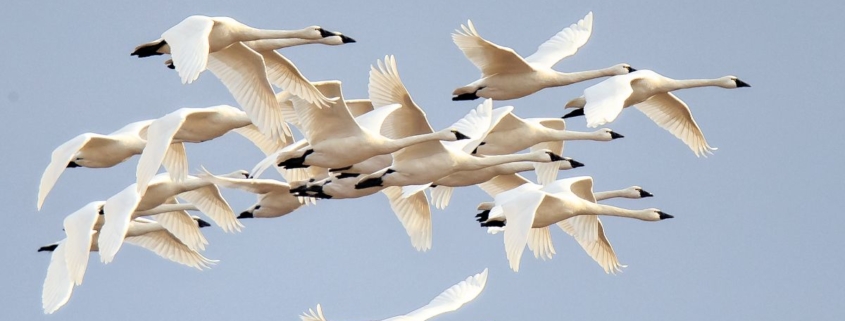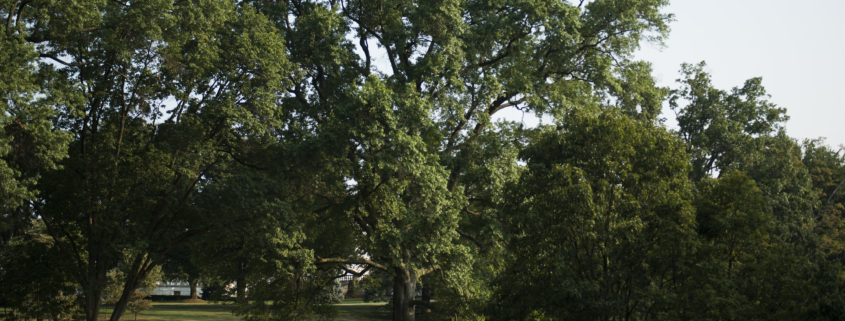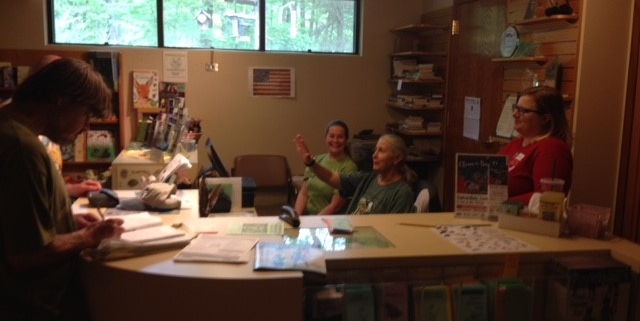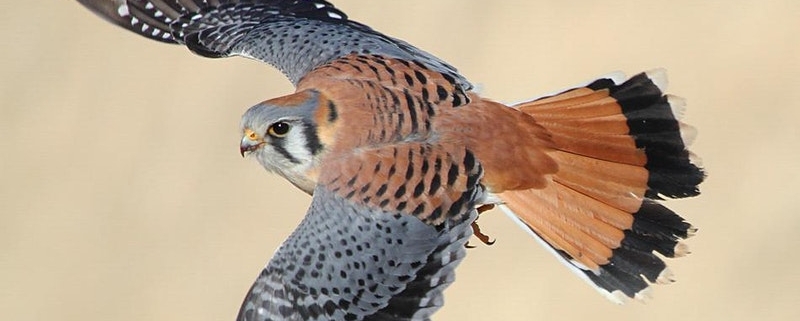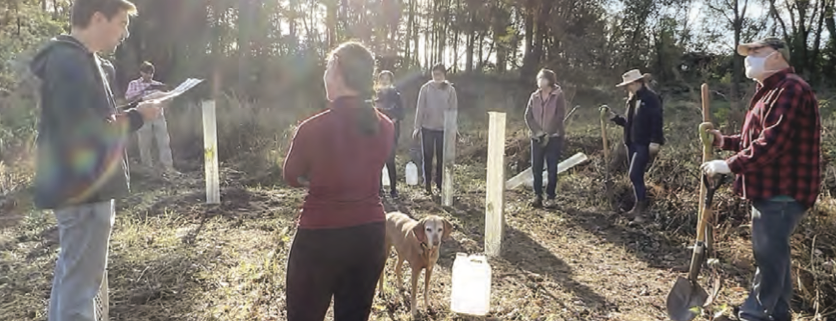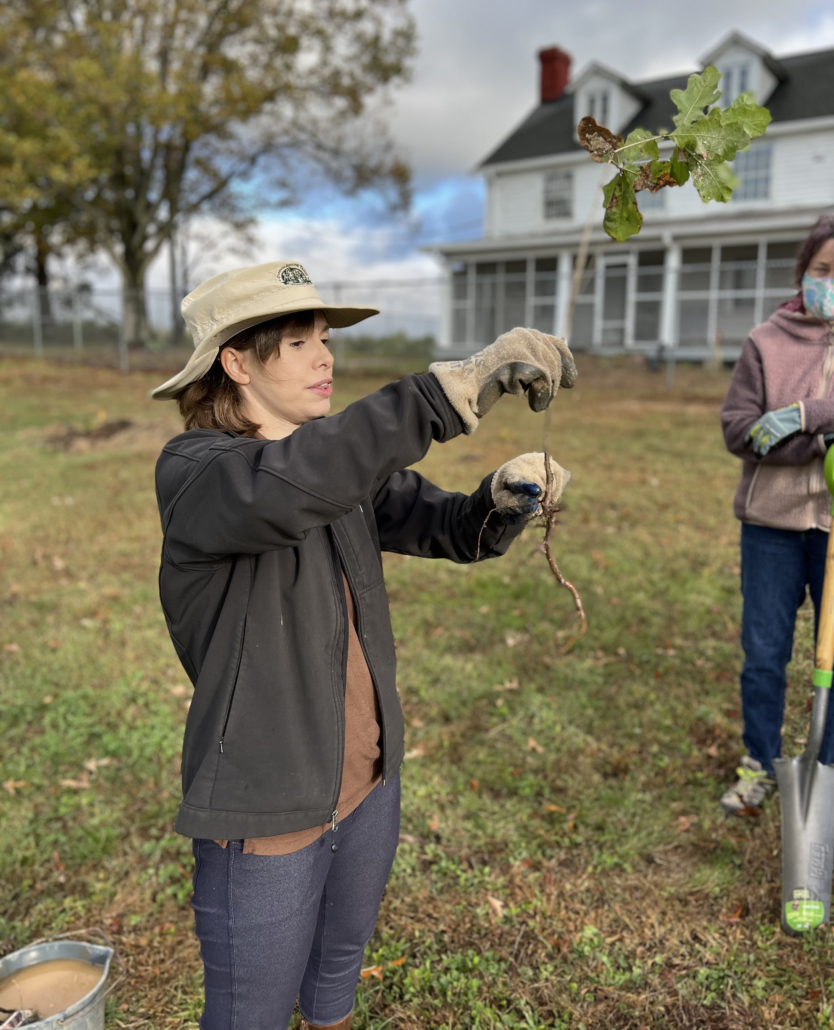U.S. Army photo by Rachel Larue/released
Article by Plant NOVA Trees
Arlington National Cemetery is a place to honor, remember, and explore. The beauty of the grounds and the comfort of its visitors is enhanced by close to 10,000 trees, some dating back to before the Civil War. The diverse collection of this Certified Level III Arboretum include many species native to Northern Virginia including the state co-champion Pin Oak, near the Memorial Amphitheater. (A champion tree is the largest representative of its particular species within a geographic area.)
Arlington National Cemetery is dotted with native trees such as Redbuds with their lavender flowers in spring, Black Gum with its bright red fall foliage, and American Hollies that shelter the birds. Oaks are the most common species, which reflects their predominance in the Eastern forest.
Forester Greg Huse gives tours of the arboretum to visitors four times a year and points out the ecosystem services provided by mature trees. That Pin Oak, for example, not only supports the caterpillars that are the food for baby songbirds – a feature intrinsic to native plants but nearly absent in non-native ones – but also absorbs 1,400 pounds of atmospheric carbon and intercepts 23,000 gallons of storm water every year.
After President John F. Kennedy was assassinated in 1963, a landscape architect firm designed the Kennedy memorial site, home of the Eternal Flame. The designers worked around a 200 year-old Post Oak, 60 inches in diameter, which later became known as the Arlington Oak. In 2012, this massive tree was blown down by Hurricane Irene and could not be rescued. By good fortune, though, its acorns had been collected by American Forests as part of their historically significant trees project. Three of those saplings were donated back to Arlington Cemetery and planted in the same plaza, where they are now ten to twelve feet tall and thriving.
Trees are not the only native plants at the cemetery. Horticulturalist Kelly Wilson has been steadily adding a diversity of herbaceous and woody plants throughout the last decade, especially in the newer bio-retention areas (rain gardens). In these public areas, she designs with a small number of species to keep a neat-and-clean look, while in a staff parking area, she allows for more exuberance. Favorite natives utilized are the purple-flowering Ironweed which attracts many pollinators. Monarch caterpillars have taken advantage of the Butterflyweed. River Birch with its beautiful peeling bark does very well in rain gardens.
The 639 acres of Arlington National Cemetery, which is the resting place for 400,000 American servicemembers and family, are cared for by five permanent staff members who supervise the work of 90-100 contractors. The trees that grace this National Treasure are an essential feature, just as they are in any neighborhood where residents value the beauty and services they provide.
To learn what you can do to plant and protect trees on your own property, visit www.plantnovatrees.org. Many of the trees will still have their fall colors in November when Arlington National Cemetery hosts the Centennial Commemoration of the Tomb of the Unknown Soldier. On November 9-10, a flower ceremony takes place where the American public will be able to place a flower at the Tomb of the Unknown Soldier. On November 11, an Armed Forces full honors procession takes place as it did a hundred years ago on November 11, 1921. Find out more about the Tomb of the Unknown Soldier Centennial Commemoration at www.arlingtoncemetery.mil.


